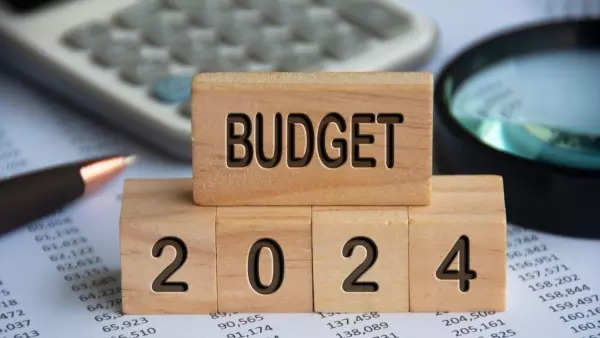
By Prathiba Raju and Abhijeet Singh
New Delhi: As the countdown begins for the Union Budget 2024, which will be presented by Finance Minister Nirmala Sitharaman on July 23, the anticipation among healthcare leaders focus on significant increase in GDP, tax incentives, rationlisation of GST, lower import tariffs on diagnostics equipment, promotion of cervical cancer vaccination for girls, and adoption of indigenous AI-powered technologies.
With widespread anticipation for Modi 3.0 Union Budget several key opinion leaders in the healthcare industry highlighted their concerns and expectations from the forthcoming Union Budget 2024-25.
Dr Sangita Reddy, Joint Managing Director, Apollo Hospitals Group:
“The interim budget rightly emphasised preventive care, women’s health, infrastructure expansion, and child development, marking significant strides toward a healthier future. We anticipate that the upcoming budget will maintain and strengthen this approach. The promotion of cervical cancer prevention by vaccination for girls aged 9-14 was one of the major announcements, and it represents a significant step toward improving women’s health. Strengthening infrastructure is crucial to enhance health services in rural and remote regions, ensuring equitable access to healthcare. Increased support is expected from the government to achieve this goal.”
Dr Azad Moopen, Founder and Chairman, Aster DM Healthcare:
“I hope to see a significant increase in the healthcare sector’s budget allocation to at least 5% of GDP. This is crucial to address existing gaps and enhance the overall quality of healthcare delivery in India. There is an urgent need for medical colleges, nursing colleges, and paramedical colleges in all 500 district hospitals across the country. Creating a Central Digital Health and AI University would further aid in utilizing technological innovation in healthcare. Additionally, upskilling personnel and establishing Central Medical Research and Innovation Institutes in every state are essential.”
Vishal Bali, Executive Chairman, Asia Healthcare Holdings:
“The government needs to provide a much higher impetus to the private sector by giving tax incentives for setting up healthcare infrastructure and adding hospital beds in tier 2-3 cities across the country to help reduce the demand-supply gap of healthcare in emerging India. The sector needs a robust policy for domestic manufacturing of medical technology and consumables. Currently, India is importing Rs. 63,200 crore of medical devices and is over 80% dependent on imports. Continued support in terms of tax reforms for R&D in the medical technologies sector is needed.”
Himanshu Baid, Managing Director, Poly Medicure Ltd:
“GST rationalisation is a long-standing expectation of the medical device sector. Simplifying the GST structure to a uniform 12% across all categories will enhance affordability in healthcare and strengthen domestic manufacturing. Consolidating regulatory approvals into a unified platform will accelerate the introduction of innovative medical devices to market. Investments in telemedicine, electronic health records, and digital platforms will improve healthcare access and efficiency, particularly in remote areas.”
Dr Simmardeep S. Gill, MD & CEO, Sterling Hospitals:
“We need rationalised GST rates and lower import tariffs on diagnostic equipment to make operations smoother and encourage local production, reducing our dependence on imports. Streamlining processes and infrastructure can enhance the sector. Investing in AI and machine learning can revolutionize diagnostics and personalized care, making healthcare more efficient and effective.”
Sameer Dashputre, Chief Strategy Officer & Co-Founder, Dozee:
“Delivering quality healthcare across a wide geography with limited human resources is a key challenge for India. Technology is the biggest force multiplier, enabling us to bridge the gap in a shorter time and at a lesser cost. We recommend fund allocation for a dedicated Bharat Healthtech AI to develop and implement large-scale adoption of indigenous AI-powered technologies.”
Dr Babina Nandakumar, Chief Medical Officer, Jindal Naturecure Institute:
“We advocate for an increased healthcare budget allocation, a streamlined GST framework, and a strengthened healthcare value chain. Expectations include initiatives to promote R&D in naturopathy, tax incentives for sector investments, and public-private partnerships to enhance the accessibility and affordability of treatments. Emphasizing education and training programs for practitioners will ensure a skilled workforce ready to meet growing demand.”
Dr Sanjeev Singh, Medical Director, Amrita Hospital:
“Increased budget allocation is crucial for building and upgrading hospitals, clinics, and diagnostic centers. This investment will improve access to healthcare services and enhance the overall quality of care. The budget should allocate funds for research in cutting-edge areas such as genomics, personalized medicine, and artificial intelligence in healthcare. Tax incentives and simplified regulatory frameworks are essential for fostering public-private partnerships.”
Dr Vaibhav Kapoor, Co-founder, Pristyn Care:
“We expect the budget to emphasize building infrastructure and technology for healthcare, as well as hiring qualified medical personnel. Improving these fundamental elements would enable better healthcare services and ensure underserved areas are adequately serviced. India must invest in advanced medical technologies and upskill healthcare professionals to scale up patient care and management, opening new pathways to a futuristic care ecosystem.
Mandeep Singh Basu, Director, Jagat Pharma and Dr. Basu Eye Hospital:
“The current scenario demands an AI-integrated healthcare system to enhance diagnostic accuracy and patient care. Increasing funding allocation for R&D and infrastructure development would improve overall medical outcomes. Establishing more Ayurvedic colleges and allocating funds for research and development will enable comprehensive case studies, clinical trials, and new drug developments.”






